If you haven’t already, be sure to check out Part One of my conversation with Elaine Dickson of Reading Owls International. Here, she tells us more about the work and future of the organization and its impact.
Where/when have you seen the impact of your work?
Part of our strategy for “creating readers for life” in Jamaica is to focus on a geographic area, saturate it before expanding to other areas of the island. We have been focused in Western Jamaica and built (capital project) and opened our first library in September 2015. Because of the way schools are structured in Jamaica, one school can have students from several communities attending. We have been able to touch a number of communities without having a physical structure in them as all of our libraries have to be lending libraries. In some cases we have created an adult section to help mitigate the absence of a public library close to a community. Some of the communities we work with are in deep rural or remote parts of the country so access to a public library is a real challenge. One of the heartwarming stories from our first library project is that a teacher at the school sometimes opens the library on weekends for the entire community to use.
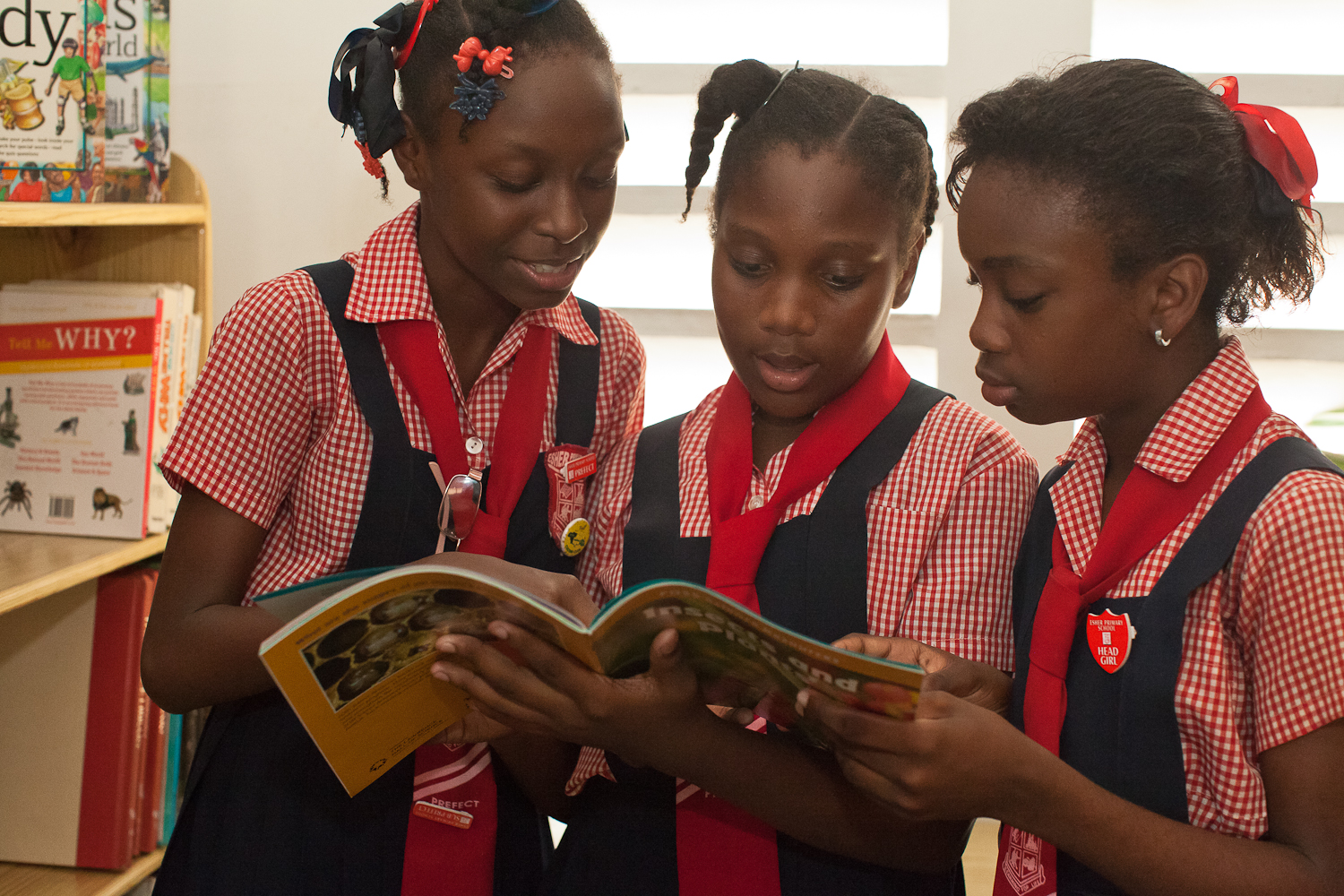
Since our inception and through 2016, more than 4,400 children now have access to books at a lending library at their school. Our collaboration with the Peace Corps has also given us access to literacy experts on the ground who have been an amazing extra level of support and give us immediate feedback on some of the resource challenges they are seeing and experiencing. We are able to provide a level of support that is a win-win for everyone.
What else would you like us to know about you and your work?
Nonprofit work is both exhilarating and grinding. As we share information with other NGOs, we hear similar stories across channels. Yet the challenges pale in comparison to the joy of seeing a child open their first book and learn to read. Providing access to a great education is not just good public policy, but I firmly believe it is a human right. If we are able to equip and inspire children in Jamaica to be scholars, independent readers and life-long learners, we will begin to address some of the systemic ills – illiteracy, high unemployment, and high crime – plaguing communities across Jamaica. If we truly deliver on our mission, and we cannot do it without help, then we will start to close the book on illiteracy and create an environment where all kids can compete in a global environment.
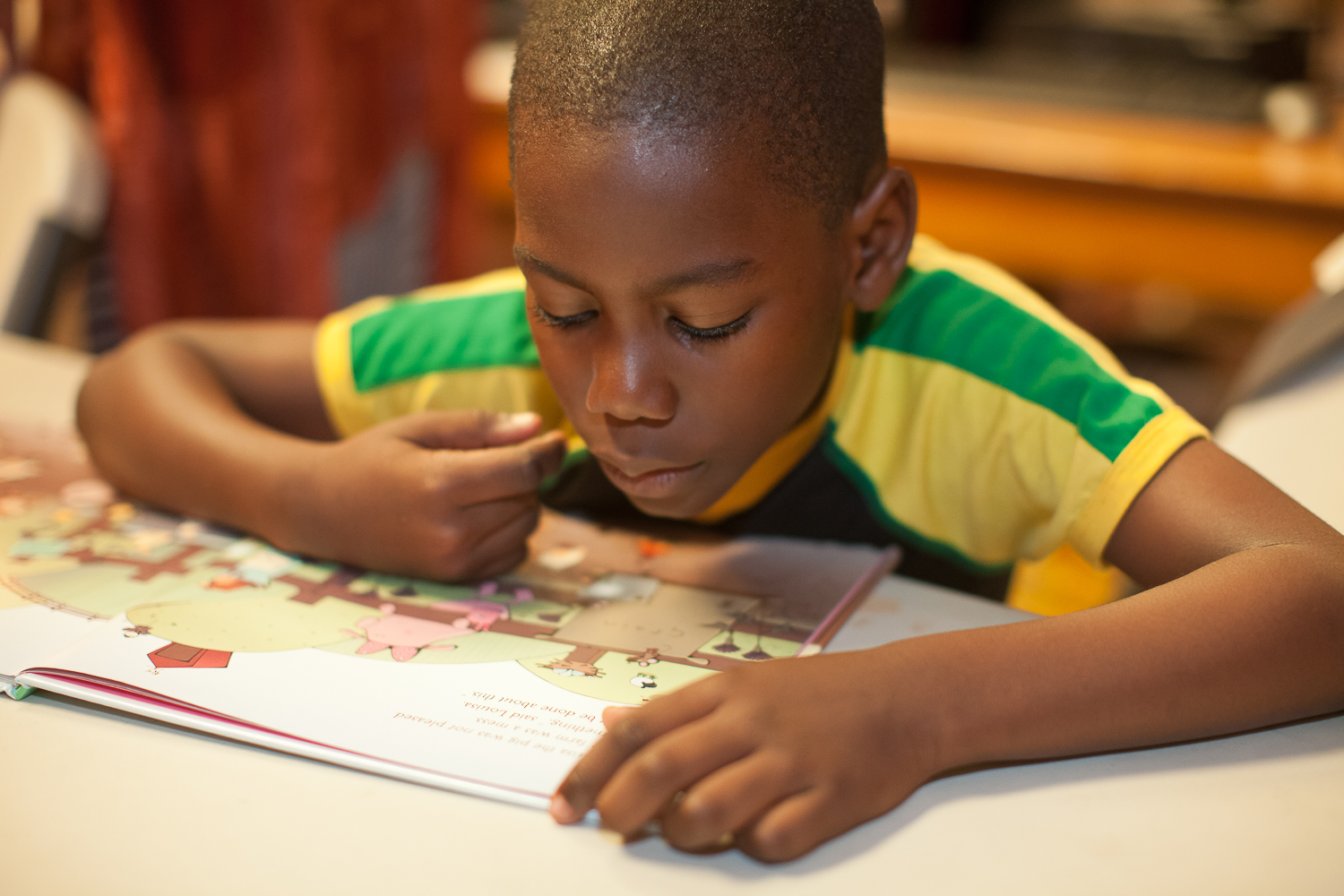
What does the organization need right now? What’s next for Reading Owls?
The simplest ways people can help our organization is to follow us on Twitter and Instagram (@thereadingowls) and like our Facebook page so they help us spread the word. We also need volunteers and are recruiting board members who are committed and passionate about education and literacy. To create libraries goes beyond gathering books; we do need lots of books and have a carefully selected wishlist at Amazon; we also welcome multicultural, beginner, picture and chapter books of all genres from publishers and book distributors, etc primarily focused on ages infant-tweens. Many of our schools have infrastructure needs and lack access to technology – these are two areas that we want to place additional focus on as we think strategically about how to bring information in real time into the classrooms to help students learn and compete with their peers across the globe.
Safe learning environments, comfortable and age-appropriate seating all make for a better learning experience and many of our schools lack good infrastructure so before we can deliver books, we often have to renovate or help create library spaces and it is an expensive undertaking. Pallets of books are heavy and a significant amount of our funds raised are spent on shipping/custom related expenses. We need partners in the supply chain, especially shipping overland and sea to help us mitigate the cost of shipping.
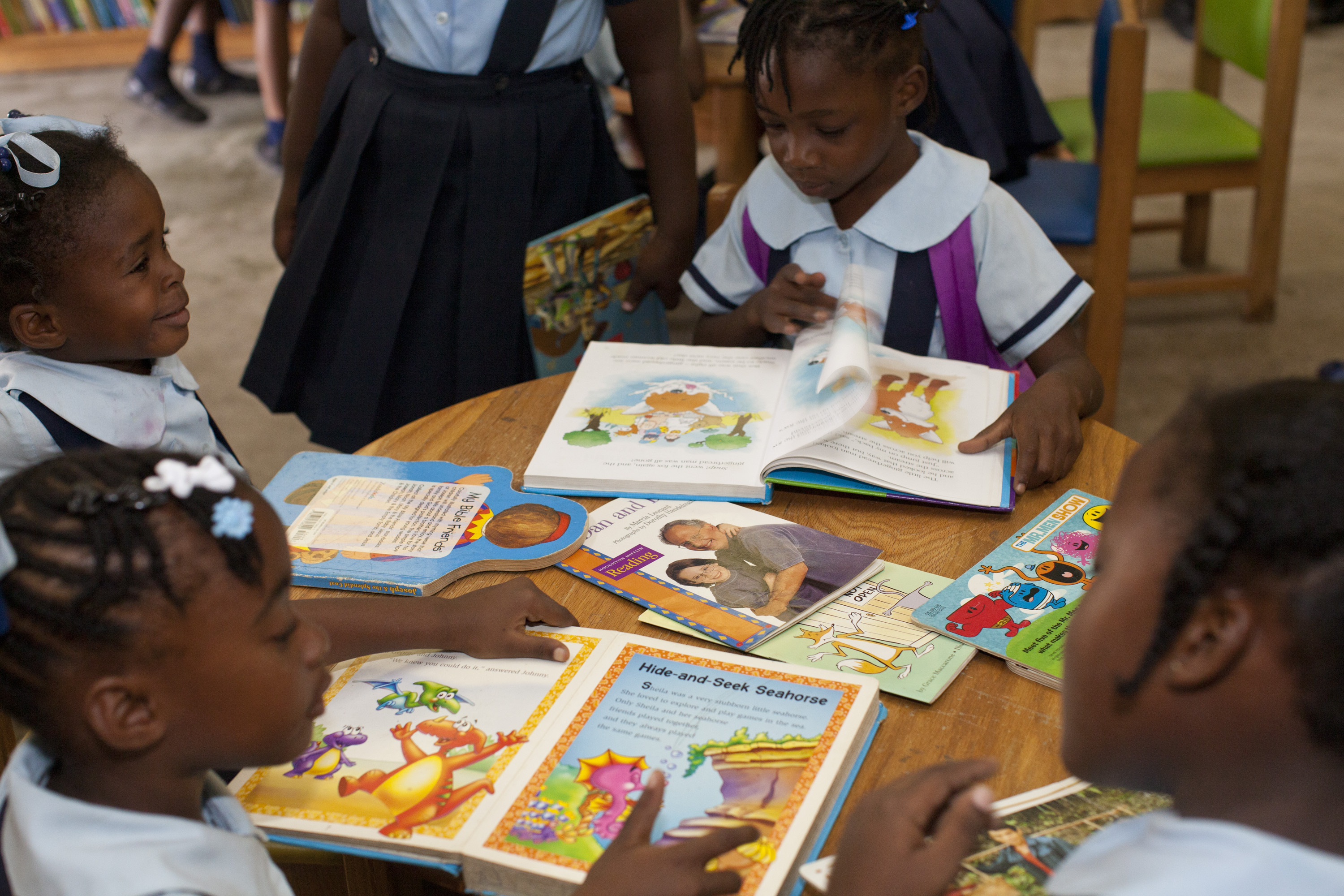
We are also actively exploring more alliances to support program implementation and expansion. We are devising ways to provide more training and support for our partner organizations. We are also exploring best methods reassessments/outcomes. We will be getting much-needed support from a first class management consulting team to brainstorm best metrics in the next few weeks.
Lastly, we are staying focused on growth so that every child has access to books, if not at home, then certainly at school. The challenge is real: In 2015, 45% of Jamaican girls and 63% of boys in grades 1 through 3 were not proficient in reading.
If these students do not get immediate intervention and ongoing support, they might not become grade-level readers.
Where Do We Go From Here?
As a society, we have to see every child as our child. Our world is becoming more and more connected and challenges in any part of the world affects us here in the US. It may manifest in the form of immigration or more foreign aid, but we are not immune from it. I still believe that education is the best vehicle for getting families out of poverty and providing access to a good education has to be part of any economic development strategy for any country.
We all have a role to play, starting with reading to/with our own kids and presenting books as a wonderful choice for enjoyment and leisure. Then we must engage in ways that effect public policy and make sure that all levels of government provide adequate funding for schools, public libraries and community development. On a more global scale we can lobby our governments to divert aid to countries that value all lives equally and are investing in girls’ education as well. For those of us who are able, we can give to charities/NGOs that promote literacy and education around the world.
Specifically to Jamaica, I would like to see the Jamaican government provide increased funding for early education programs. Plus, higher salaries for teachers. A great education for students starts with ensuring the best and brightest want to enter the teaching profession and stay there. There has been a strong appetite over the last decade for investments in early education and by all measures – gains in the national literacy rate, which is currently in the mid-80s (the goal was 85% for 2015) and up from 77.4% only a few years ago is a good sign. Special attention also needs to be paid to Jamaica’s boys as they consistently lag girls by double digit points.
At Reading Owls we are committed to being on the front lines and are buoyed by the tremendous support we have received to date. Together with our supporters, we are “creating readers for life.”
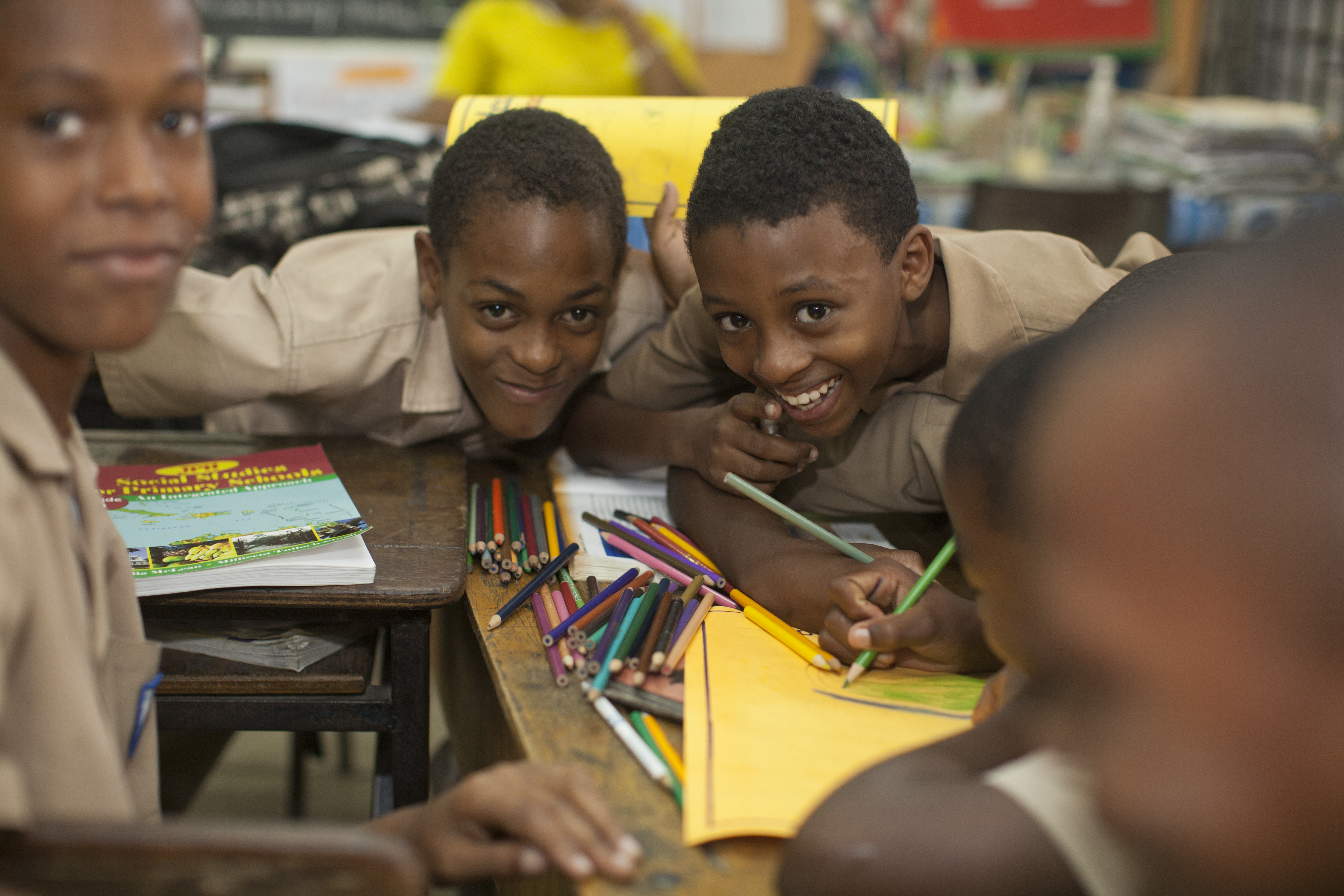
If you would like to learn more about Reading Owls International and how you can help, visit them online. Thank you for sharing your powerful story, Elaine!

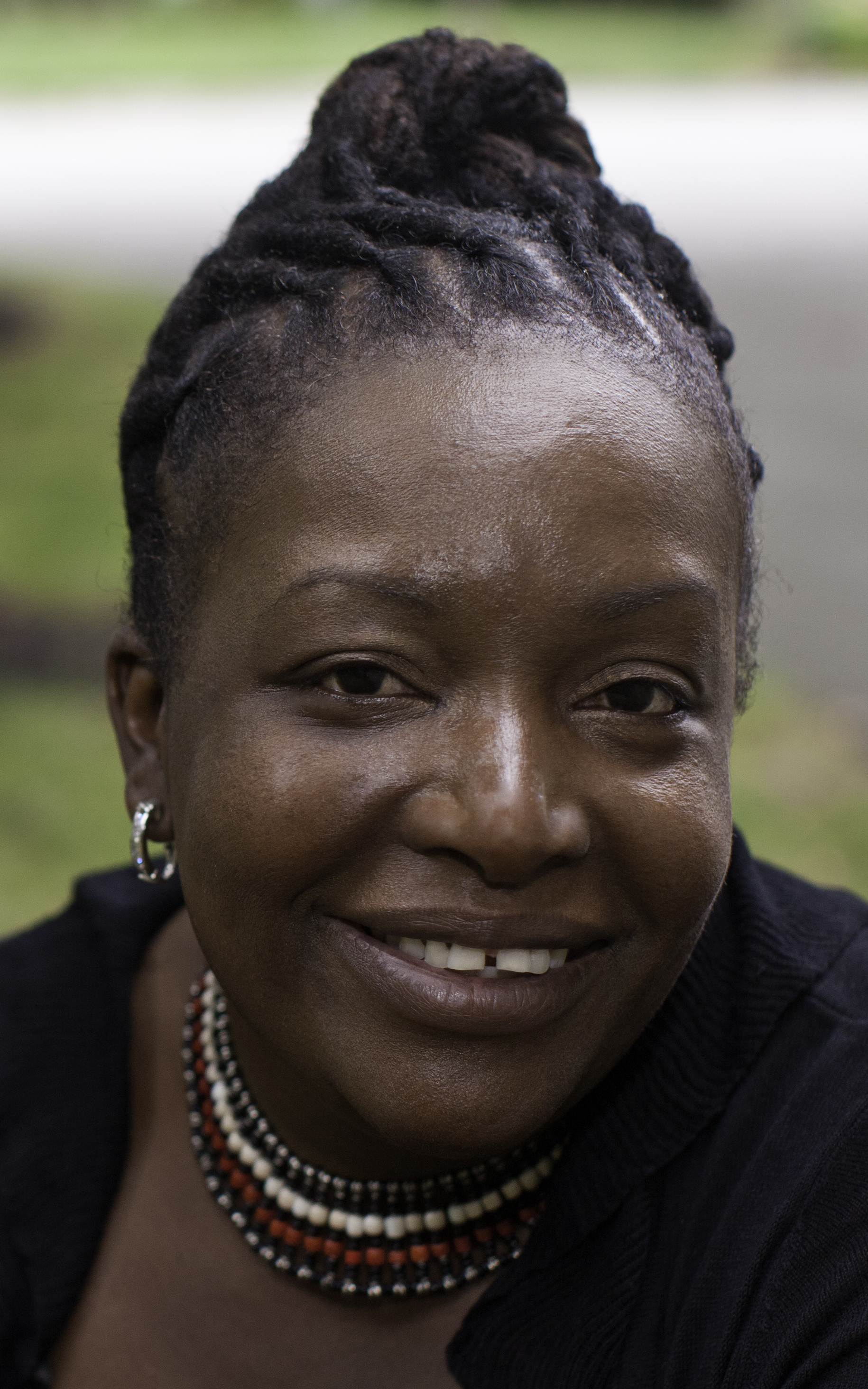
As always great coverage of important children’s book authors. I’m always discovering something new here.
So impressed with Elaine Dickson and Reading Owls International! I love that a teacher opens the library on weekends for the entire community to use.
Their online bookstore is pretty impressive as well: http://www.readingowlsinternational.org/multicultural
Really enjoyed this two part interview – it’s always good to hear that around the world, people of color are strengthening readers in the next generation.
I was amazed that a teacher has control of a library and inspiring future readers and writers to come.